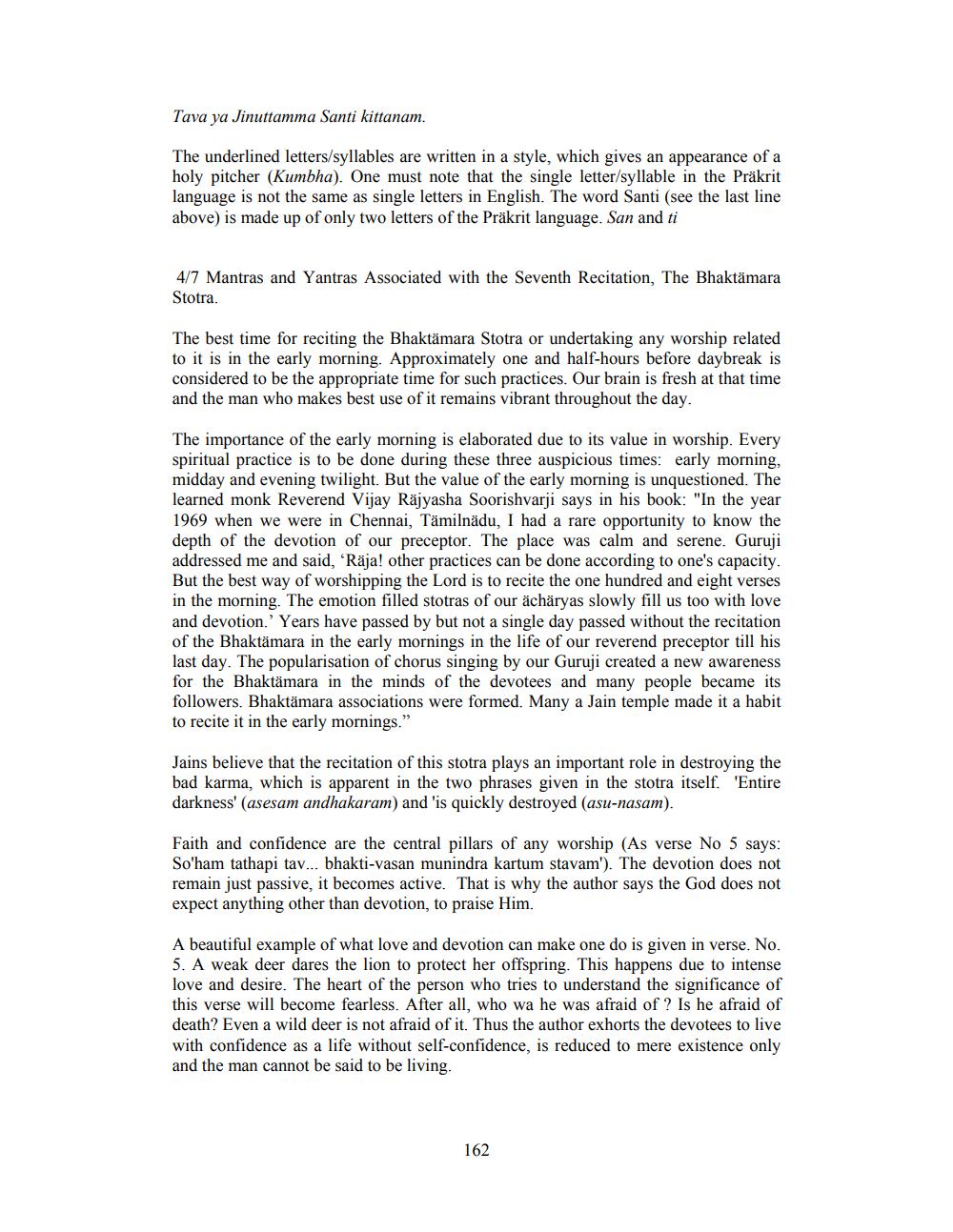________________
Tava ya Jinuttamma Santi kittanam.
The underlined letters/syllables are written in a style, which gives an appearance of a holy pitcher (Kumbha). One must note that the single letter/syllable in the Präkrit language is not the same as single letters in English. The word Santi (see the last line above) is made up of only two letters of the Präkrit language. San and ti
4/7 Mantras and Yantras Associated with the Seventh Recitation, The Bhaktämara Stotra.
The best time for reciting the Bhaktämara Stotra or undertaking any worship related to it is in the early morning. Approximately one and half-hours before daybreak is considered to be the appropriate time for such practices. Our brain is fresh at that time and the man who makes best use of it remains vibrant throughout the day.
The importance of the early morning is elaborated due to its value in worship. Every spiritual practice is to be done during these three auspicious times: early morning, midday and evening twilight. But the value of the early morning is unquestioned. The learned monk Reverend Vijay Räjyasha Soorishvarji says in his book: "In the year 1969 when we were in Chennai, Tamilnadu, I had a rare opportunity to know the depth of the devotion of our preceptor. The place was calm and serene. Guruji addressed me and said, 'Räja! other practices can be done according to one's capacity. But the best way of worshipping the Lord is to recite the one hundred and eight verses in the morning. The emotion filled stotras of our ächäryas slowly fill us too with love and devotion.' Years have passed by but not a single day passed without the recitation of the Bhaktämara in the early mornings in the life of our reverend preceptor till his last day. The popularisation of chorus singing by our Guruji created a new awareness for the Bhaktämara in the minds of the devotees and many people became its followers. Bhaktämara associations were formed. Many a Jain temple made it a habit to recite it in the early mornings."
Jains believe that the recitation of this stotra plays an important role in destroying the bad karma, which is apparent in the two phrases given in the stotra itself. 'Entire darkness' (asesam andhakaram) and 'is quickly destroyed (asu-nasam).
Faith and confidence are the central pillars of any worship (As verse No 5 says: So'ham tathapi tav... bhakti-vasan munindra kartum stavam'). The devotion does not remain just passive, it becomes active. That is why the author says the God does not expect anything other than devotion, to praise Him.
A beautiful example of what love and devotion can make one do is given in verse. No. 5. A weak deer dares the lion to protect her offspring. This happens due to intense love and desire. The heart of the person who tries to understand the significance of this verse will become fearless. After all, who wa he was afraid of? Is he afraid of death? Even a wild deer is not afraid of it. Thus the author exhorts the devotees to live with confidence as a life without self-confidence, is reduced to mere existence only and the man cannot be said to be living.
162




